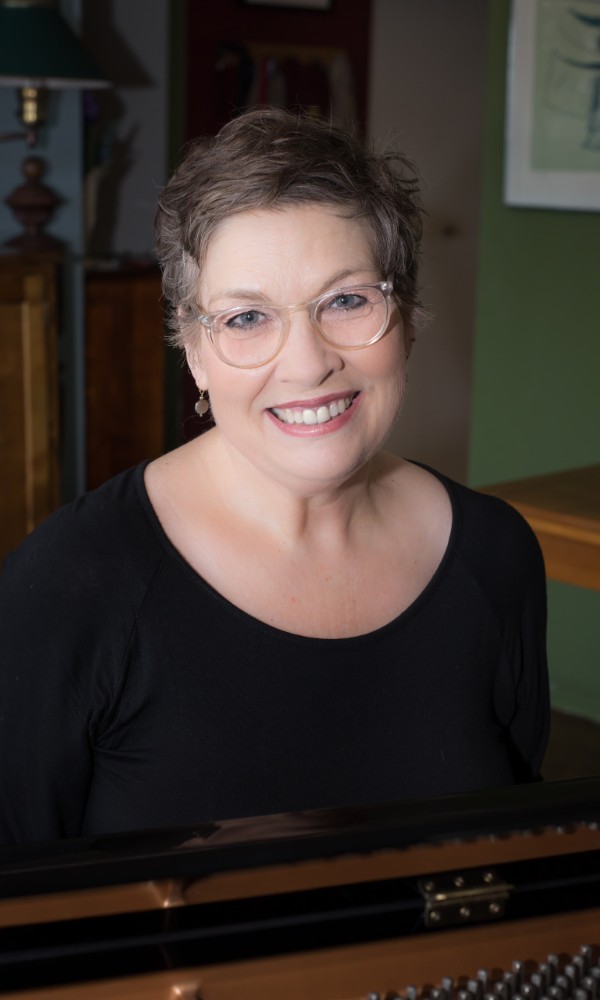Chances are, the last time you went to the opera—or the orchestra or a Broadway show, for that matter—the conductor standing on the podium or in the pit was a man. Female conductors have, historically, been underrepresented across all performing arts genres, though, slowly but surely that’s beginning to change. The Dallas Opera’s Hart Institute, which has offered two-week residencies for female conductors since 2014, noted a rise in the percentage of women conducting at top-tier US opera companies, an increase from four to 14 percent in its first five years. And locally, Opera Saratoga recently made a commitment to ensure that, during every season going forward, at least half its conductors and directors would be women. This year, the 2021 season, marks the first time ever that all of Opera Saratoga’s productions will be conducted by women.
One of the conductors that will take the podium at this summer’s festival is Michelle Rofrano, a New Jersey native who was introduced to classical music and opera at a very young age. “My grandfather was always a huge fan of classical music,” Rofrano says. “He grew up during World War II in Sicily, and his family didn’t have much money. And then he came here, and worked in a textile factory his entire life. So he loved to sing, but sadly was never able to pursue music. He would always save up his money to go to the Metropolitan Opera whenever he could, so I grew up with him bringing me to the Met, which is an incredible experience for a kid.”

For obvious reasons, the classical repertoire will always be closest to Rofrano’s heart. And so, Don Quichotte at Camacho’s Wedding, the one-act comic serenata she’ll be conducting with Opera Saratoga this summer, is right in her wheelhouse. But Rofrano says she’s as excited about some of the other aspects of her upcoming residency in Saratoga, including spending time in the area and working with artists from Opera Saratoga’s Young Artist Program—not to mention her female co-conductor, Laura Bergquist. “I’m excited to work with an all-female conducting staff,” she says. “This will be the first time I’ve been at a festival—or anywhere—where that’s the case.”
This summer’s festival will also mark the first time Bergquist, who will be on the podium for Opera Saratoga’s three performances of Man of La Mancha this July, will work with an all-female conducting staff. Like Rofrano, the New York City–based conductor got her start in classical music at an early age, but for Bergquist, it was through her church. A pianist and classically trained singer, Bergquist performed lead roles in opera and musical theater before transitioning to conducting, and since then has nabbed conducting credits for Off-Broadway productions of Fiddler on the Roof and Daddy Long Legs, plus several world premieres, including the Broadway show Allegiance. “Countless times, I’ve been proud of shows, concerts, classes and students in my career,” she says, “but experiencing an opening night on Broadway, standing on the podium in the orchestra pit and telling the story of Allegiance, was remarkable and never to be forgotten.”
As for Rofrano and Bergquist’s experiences as women in a historically male-dominated field? They’ve been largely positive. “While there still aren’t a ton of women conducting today,” Rofrano says, “there’s a lot of solidarity between female colleagues my age and female mentors I’ve worked with.” Laurie Rogers, Opera Saratoga’s Head of Music Staff and Director of the company’s acclaimed Young Artist Program, notes that “one of the aspects I love the most about my job is connecting with and mentoring our Conducting and Coaching Fellows, an increasing number of whom have been women in recent years.” (Rogers will serve as the music director of this summer’s Quixotic Opera.) Bergquist agrees, having also had the opportunity to mentor young women conductors. “I’m thrilled to have young girls—teens, college students—see a viable career path modeled for them,” she says. “I’ve been so privileged to be the ‘first’ female conductor in so many situations. It continues to surprise me that in 2021, I still get the comment, ‘I’ve never seen a woman conduct an orchestra before!’” After this summer, anyone who attended one of Opera Saratoga’s performances will no longer feel that way.


